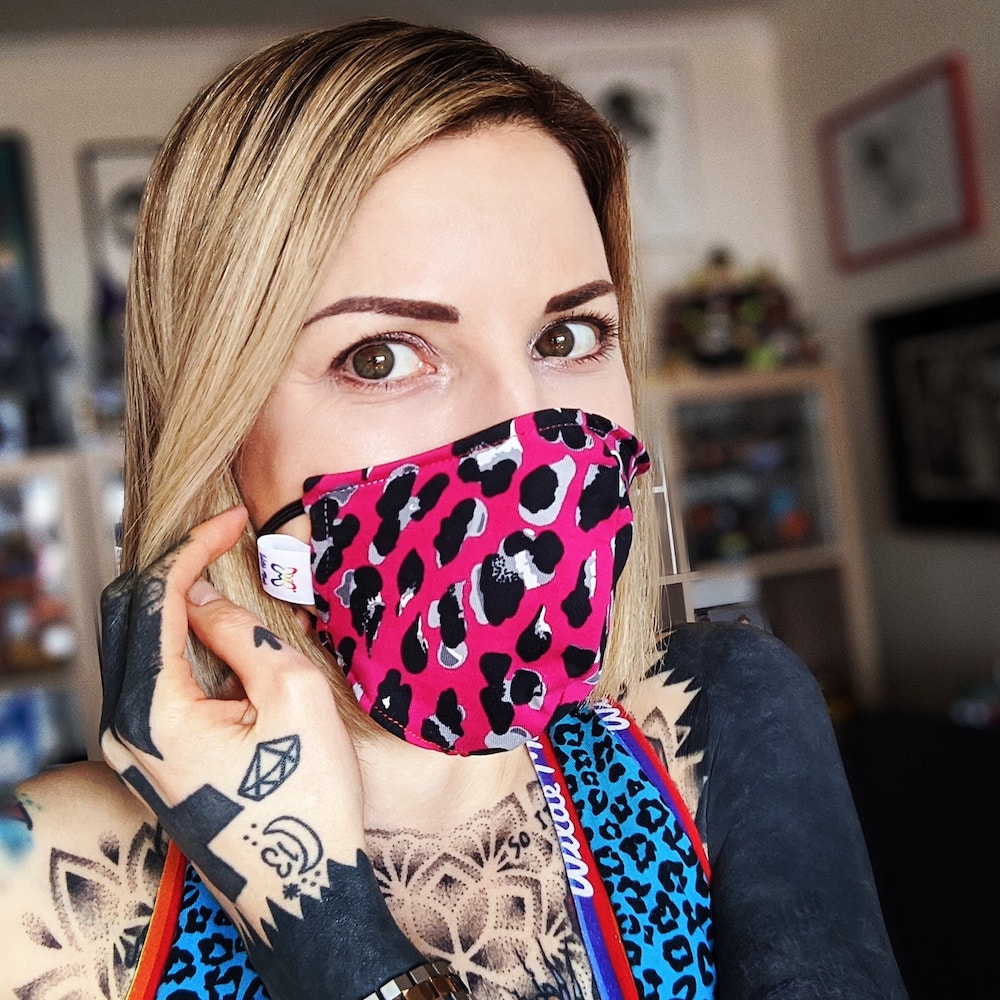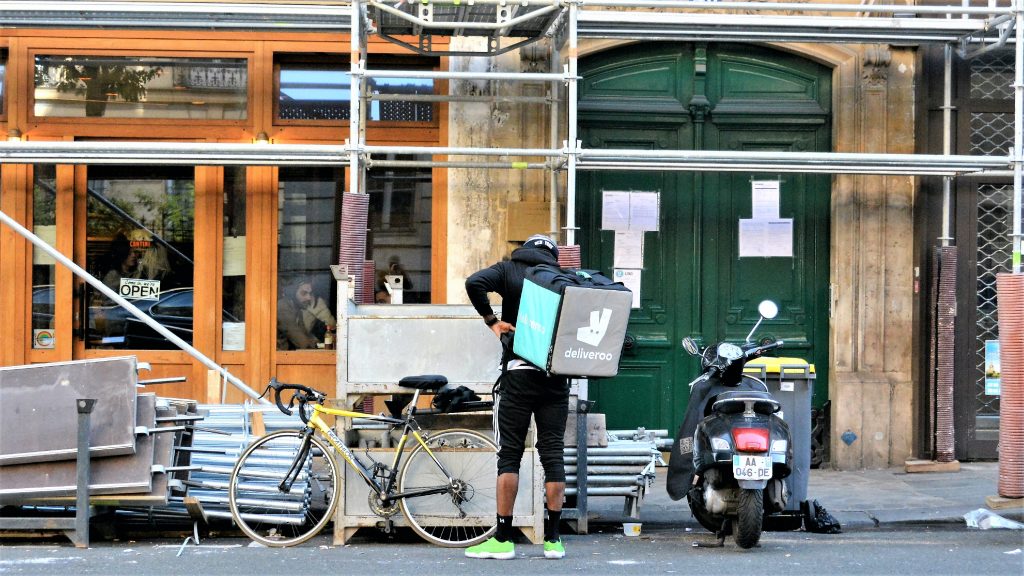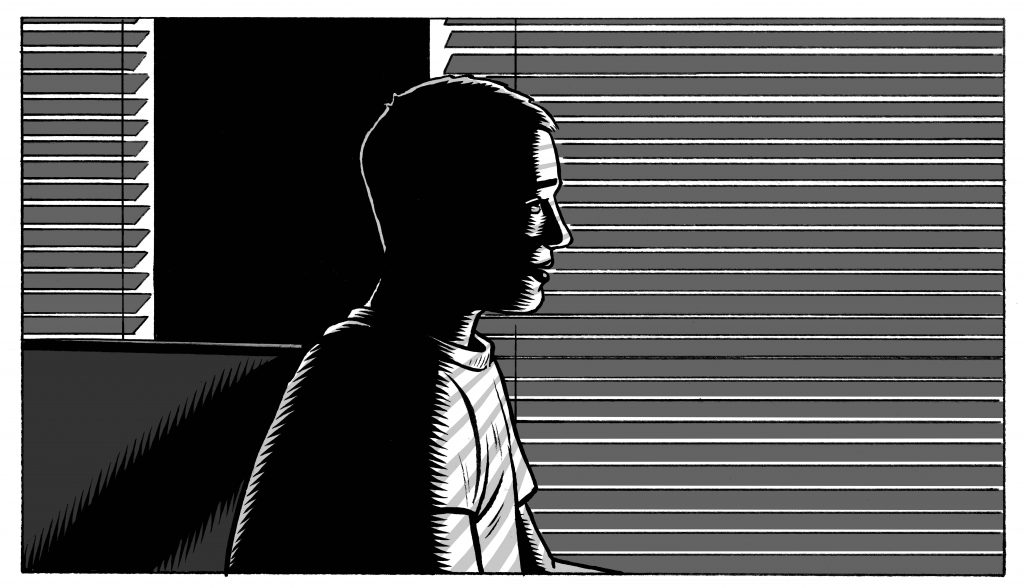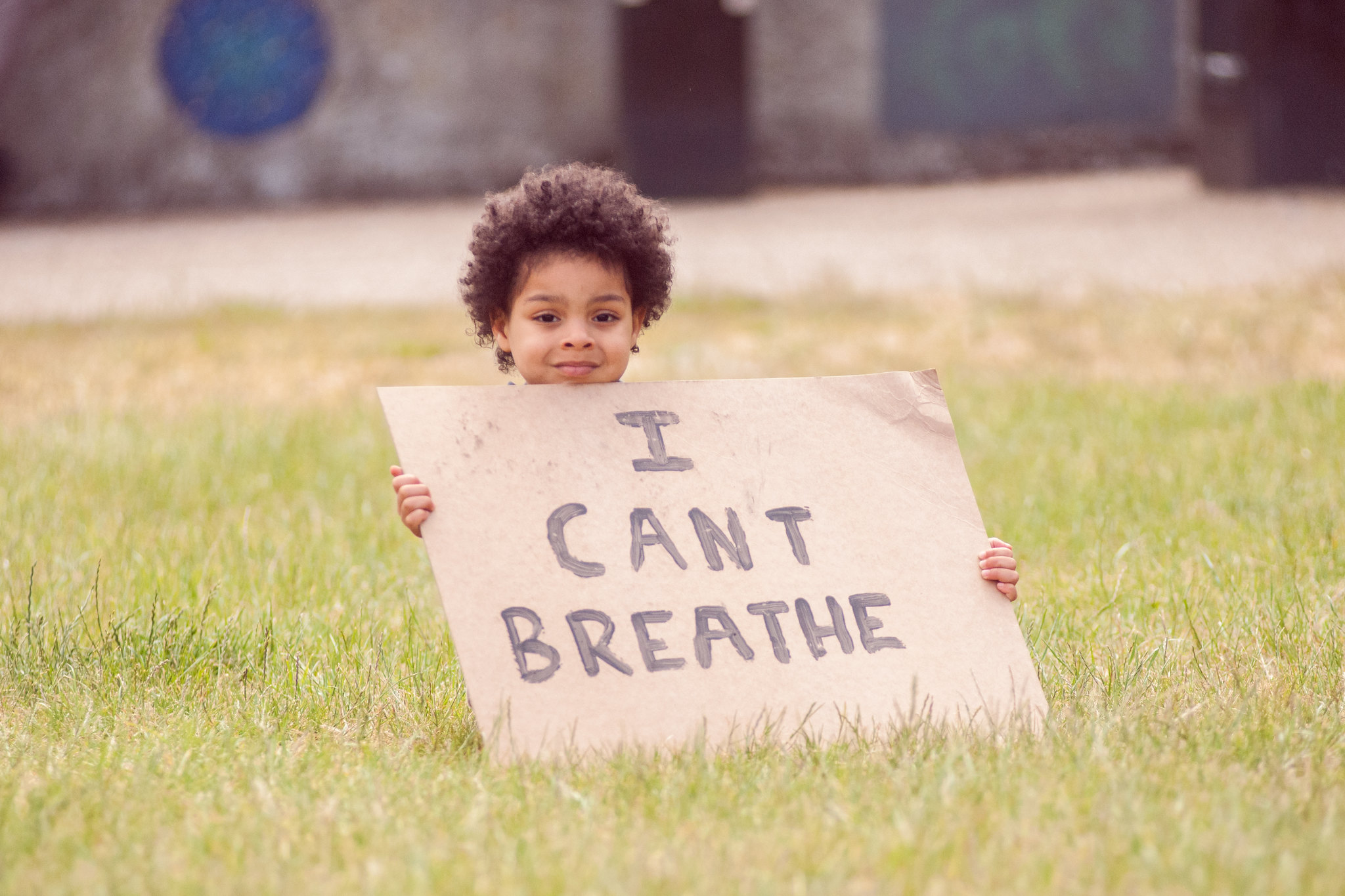In the second part of our review of 2020, EachOther looks back at the last six months and highlights some of the biggest stories we reported on. Read the first part here.
July

Emma Mendes da Costa. Credit: Courtesy of Emma Mendes da Costa/National Deaf Children’s Society
It was on 24 July this year that it became mandatory for the public to wear face coverings while inside shops in England. The evidence of how mask-wearing can help prevent the spread of Covid-19 is clear.
But what was less clear at that time was the government’s stance on enabling public-facing workers to access clear face masks to ensure deaf people aren’t left behind, as we discovered when we spoke to charities and campaigners.
Meanwhile, as the economic impact of the Covid-19 pandemic continued to bite, housing campaigners urged the government to introduce emergency legislation to protect tens of thousands of private renters at risk of being made homeless.
English Housing Survey data released in July revealed that 28% of private renters found it difficult to pay rent in the year to March 2019 – which is nearly 1.2 million people. The same survey found that more than six in ten (61%) of private renters had no savings.
In July, judges also declared that Shamima Begum – who five years ago, age 15, left her east London home to marry an IS fighter in Syria – must be allowed to return to the UK to challenge the decision to revoke her British citizenship.
It was argued that she could not have a fair hearing if she participated remotely from Syria, as she could not make her case from the camp.
Human rights lawyer Shoaib Khan examined for us why the decision was important in upholding our right to a fair trial.
And, as Black Lives Matter protests continued to spread across the UK and the world, EachOther outlined its pledge to become an anti-racist organisation. These protests were reignited following the death of George Floyd, an unarmed Black man killed in US police custody.
August: Black Lives Matter Takeover
One aspect of EachOther’s pledge to become an anti-racist organisation was to host a month-long Black Lives Matter takeover of our website. We invited four Black guest editors to collaborate with us in setting our editorial direction.
Black Protest Legal Support’s Ife Thompson, our justice editor, shined a light on why lawyers must take a grassroots, bottom-up approach to working with communities fighting racism. Under her watch, we looked at ongoing injustices faced by the Windrush generation, the racism which pervades UK courtrooms, and young people’s calls to protect human rights by defunding the police.
Professor Kehinde Andrews, our education editor, called for the transformation of our human rights system, which belies the very present legacies of slavery and colonialism. He turned our attention to the past and future of Britain’s Black Saturday schools, the racial and socio-economic discrimination of this year’s A-level results algorithm, and the true meaning of decolonising curriculum.
Our education-focussed takeover week also coincided with the 2020 A-level results fiasco, in which students across the country had their results unfairly downgraded by a ‘mutant’ algorithm after exams were cancelled. Poornima Karunacadacharan, senior policy officer at equality charity Race on the Agenda (Rota), told us: “The standardisation process used by Ofqual will have a disproportionately adverse impact on [Black, Asian and minority ethnicity] and working class pupils”.
Charity editor Martha Awojobi celebrated “the black revolution” which is waking the charity sector up from its complacency on racism. She pointed us towards the barriers the charity sector is placing in the way of black leadership, the unique mental health toll young black people are suffering amid Covid-19, and the way in which black-led charities are being “funded to fail”.
Marcus Ryder, a visiting professor in media diversity at Birmingham City University, highlighted how media diversity is a human rights issue – and how the lack of it skews our perspective on the world we see. We also heard from senior political producer Anne Alexander, who for 18 years has been the country’s only black, female Lobby journalist; and spoke to experts about whether TV regulator Ofcom is doing its job when it comes to diversity.
The takeover concluded with a live panel discussion among our guest editors chaired by Gracie Mae Bradley, interim director of Liberty.
September

Footballer and food campaigner Marcus Rashford. Credit: BBC / YouTube
Six months into the pandemic, the impact of food insecurity on tens of thousands of UK children was revealed by a child food poverty task force set up by footballer and campaigner Marcus Rashford.
Food Standards Agency data, analysed by the Food Foundation, revealed that 14% of UK families with children have experienced food insecurity since April – which equates to four million adults and 2.3m children. This is an increase on pre-Covid levels – where 11.5% of families were reported to be food insecure.
The figures came as the Manchester United star’s task force – consisting of charities, experts and supermarket brands – urged the government to boost funding for three key measures put forward by the National Food Strategy.
In September, we also launched a new video series called ‘A Minute Of Your Time’ – in which an expert explains an important human rights issue in just 60 seconds.
The pilot featured the TUC’s women and equality officer Sian Elliot. She explained how the government’s hostile environment immigration policies have left some migrant women having to choose between destitution and dying on the job amid the pandemic.
Also in September, the UK government announced the long-anticipated outcome of its review of the 2004 Gender Recognition Act.
Human rights groups lamented the UK government’s decision not to reform the Act, warning that trans people in England and Wales will continue to be “forced through harmful processes” if they wish to have their gender legally recognised.
Trans people have long criticised the process of obtaining a Gender Recognition Act (GRC) as invasive, outdated and distressing.
Earlier this year EachOther heard from Dee Livesey, 57, who spoke of how her GRC transformed her life after she was diagnosed with Parkinson’s disease. Without it, her estranged family members could potentially have laid claim to her estate. She described the process of obtaining the certificate as “the hardest thing [she’s] ever done”.
October
In October, the government moved a step closer towards ‘reviewing’ – and potentially weakening – one of the key ways in which ordinary people can protect their rights: judicial review (JR). We published a film and a story explaining what JR is and why it matters.
JR is basically a kind of court case which enables people to challenge decisions made by public bodies – such as the government, councils or police – in situations where you think you were treated unfairly or your rights were breached.
It helped thousands of students across the country to have “discriminatory” computer-calculated exam grades scrapped this summer. It enabled health workers on the Covid frontlines to challenge the government over personal protective equipment shortages. It helped Gurkha veterans, who have been part of the British Army for centuries, challenge a policy which denied them settlement in the UK. And it kept a “dangerous” rapist behind bars.
Boris Johnson and Lord chancellor Robert Buckland QC have set up a panel of experts tasked with examining the need “for potential reforms to judicial review”.
“This review will ensure this precious check on government power is maintained, while making sure the process is not abused or used to conduct politics by another means,” Buckland said at the time.
In October, MPs also voted to renew the Coronavirus Act for a further six months, after it was introduced in March.
This Act grants the government unprecedented emergency powers in a range of sectors aimed at limiting the spread of coronavirus, including measures affecting individual freedoms, police powers and adult social care. The Act’s renewal came as the government made self-isolation legally enforceable – where previously it was unenforceable guidance – with fines of up to £10,000 for individuals who do not comply.
As students returned to university amid the pandemic, there were rising concerns over their welfare. The PM said he wanted to “pay a particular tribute” to students – but his words appeared to be of little comfort to those stranded in university halls nationwide. There were reports of students begging for food, or being told to wash their clothes in sinks. One university issued an apology following a suggestion its students broke the law by putting signs in their windows criticising the government.
We apologise for the message sent to our students last night about posters in windows, it didn't reflect the University's view. We respect the rights of students to express themselves, but as requested by @gmpolice the posters must not break the law or they'll have to be removed.
— Manchester Metropolitan Uni (@ManMetUni) September 27, 2020
November

A deliveroo driver next to their bike. Credit: Unsplash
In November, the High Court ruled the government failed to grant ‘gig economy’ workers rights they are entitled to under EU directives on health and safety.
This included legal protections requiring businesses to provide workers with personal protective equipment (PPE), as well as the right to stop work in response to serious and imminent danger.
The judgement means the government must now take steps to ensure these workers – who are estimated to number as many as 4.7million people in Britain – have the same protections which are afforded to employees.
MPs also found that the Equality and Human Rights Commission (EHRC) lacks the powers, leadership, trust and resources it needs to effectively enforce the rights of Black people.
The watchdog – which currently has no Black commissioners serving the typical four-year terms – was established in 2007 with the statutory responsibility of protecting human rights and reducing inequality, including racial inequality.
The report also highlighted “failings of successive governments” to act in response to the numerous reports and reviews which have revealed structural racism in state institutions.
It also rebuked the NHS over its failure to set a target to end the disparities in the maternal death rate for Black women in child birth, which is five times higher than their white peers.
December

Ben (not his real name) shares his story of being excluded from school in EachOther’s forthcoming film – Excluded. Illustration: Jon Sack
On Human Rights Day 2020 (10 December), EachOther launched ‘Excluded’ – a film amplifying young people’s voices on the issue of school exclusions.
The documentary focusses exclusively on young people’s perspectives as they speak up for their right to education – upheld by Article 2, Protocol 1 of the Human Rights Act.
In doing so, EachOther is standing up for their right to be heard – protected by Article 12 of the UN Convention of the Rights of the Child.
In the fortnight leading up to the film’s release, EachOther highlighted other important perspectives on the issue. We spoke to youth workers, headteachers, teachers, parents and the Children’s Commissioner for England.
Meanwhile, the first Pfizer/BioNTech Covid-19 vaccine was administered in December by May Parsons – a Filipino British nurse.
“I’m very proud to say that I’m a Filipino British today making history,” matron May Parsons told ITV’s Good Morning Britain, after vaccinating 90-year-old Margaret Keenan.
The nurse, who has worked for the NHS for the last 24 years, added: “I think it’s a historical event for Filipinos all across the globe and making sure we’re proud of what we’ve achieved.”
Cryton Chikoko argued that, while we should rightly celebrate this historic step, we should remain mindful of the fact that the UK’s hostile environment immigration rules have left countless other migrants, Filipino among other nationalities, facing destitution.
Regularisation will allow undocumented Filipinos, who are already in the UK, to gain fundamental rights so that they can live with dignity and participate in society fully and freely, work openly and safely contribute even further to the economy and the public purse.
Cryton Chikoko
Also in December, EachOther looked at the ‘Sexual Exploitation Bill’, proposed by Labour MP Dame Diana Johnson, which purports to protect vulnerable women.
If passed by Parliament, it would make paying for sex a criminal offence in England and Wales.
But by keeping the industry underground, Rachel Trafford argued it would expose sex workers to even more danger, not less.
This month we also published ‘We Are EachOther’ – our strategy for 2021 and beyond. It lays out what EachOther stands for, explains our medium-term plan and signals our future direction.
“As 2021 approaches, our rights are under sustained attack. Powerful politicians plan to dismantle them, Brexit is set to erode them and popular newspapers have undermined them for years. The Black Lives Matter movement has shown how far we still have to go to make real the right to protection from discrimination in this country. Meanwhile, as Covid-19 ravages the nation’s health, lockdowns curtail our rights and freedoms in ways that demand scrutiny,” wrote our chief executive Andy Hull.
“We empower those whose rights are endangered to tell their own inspirational stories. By amplifying their voices, we can help people connect across perceived divides.”







